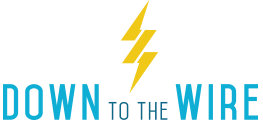As a homeowner, you want to make sure that your home and its contents are protected, and this includes electrical systems. One key aspect of this protection is understanding your homeowners insurance policy and its coverage for electrical issues. In this article, we will answer some of the most frequently asked questions related to electrical coverage in homeowners insurance, helping you make informed decisions about safeguarding your property.
Q: Does homeowners insurance cover circuit breakers?
A: Homeowners insurance typically covers circuit breaker panels in cases of fire, flood, and other similar disasters. However, normal wear and tear or outdated panels are not covered. It is important to note that several insurance companies now require the replacement of Federal Pacific and Zinsco panels before the home can be insured. To ensure the safety and proper functioning of your electrical system, it’s a good idea to have your circuit breakers inspected annually by a qualified professional.
Q: Does homeowners insurance cover faulty wiring?
A: Homeowners insurance generally does not cover faulty wiring until a disaster, such as a fire or flood, occurs. Even then, coverage depends on the specifics of your policy. Unfortunately, many policies do not include coverage for faulty wiring, leaving homeowners in a precarious situation when disaster strikes. This is especially true for older homes, where faulty wiring may be lurking behind the walls, waiting to fail. To protect your home and avoid potential losses, it’s crucial to be aware of your policy’s coverage and to consider investing in additional coverage if necessary. Additionally, consider having an inspection performed by a qualified electrician to identify and address any potential wiring issues before they lead to costly damage.
Q: What is an electrical panel?
A: An electrical panel, also known as a breaker box or distribution board, is a critical component of a building’s electrical system. It serves as the central hub that distributes electricity from the utility provider to various circuits throughout the house, apartment, or commercial property. The panel houses circuit breakers or fuses, which protect the wiring by interrupting the electrical flow in case of an overload or short circuit. Electrical panels are typically located in basements, garages, or utility rooms, and their accessibility is essential for proper maintenance and safety.
Q: Can a homeowner replace an electrical panel?
A: While it may be tempting to attempt a DIY replacement of an electrical panel, this work should be carried out by a licensed electrician who is familiar with the National Electrical Code (NEC) and can assume liability for any miswiring or improper installations that may occur. Replacing an electrical panel involves significant risks, and having a professional handle the job ensures that your electrical system remains safe, up-to-date, and compliant with local codes and regulations.
Q: Does homeowner insurance cover a house generator?
A: Homeowner insurance may cover a house generator in the event of a disaster such as a fire, flood, or other catastrophes, as long as the coverage is included in your policy. A house generator is a device that provides backup power to your home during power outages or major storm events. It is connected to the electrical panel and automatically starts when the main power supply is disrupted. To determine whether your generator is covered, it’s essential to talk to your insurance company about the brand, model, and type of generator, as well as its specific application. Additionally, you may need to make electrical panel upgrades to safely and effectively use and depend on a generator during an outage or major storm event.
Understanding the electrical coverage provided by your homeowners insurance policy is vital to ensuring the safety and protection of your home. By staying informed about your policy’s coverage and taking proactive measures, such as regular inspections and hiring licensed professionals for electrical work, you can minimize the risks associated with electrical issues and safeguard your investment. As a homeowner, always be proactive in discussing your insurance coverage with your provider, asking questions about specific components like circuit breakers, wiring, electrical panels, and generators. By doing so, you can confidently navigate potential electrical challenges and maintain a secure and comfortable living environment for you and your family.
Taking care of your home’s electrical needs
Understanding your insurance coverage is essential for maintaining a safe and comfortable living environment. The team at Down to the Wire Electrical is here to help you with all of your electrical projects, from new lighting and rewiring to main electrical service upgrades, and everything in between. As a family-run business with a foundation in honesty, trust, and genuine integrity, we treat every customer like a member of our own family. Let us light up your world with our skillful solutions, ensuring your home’s electrical system is reliable and secure.
Don’t hesitate to reach out to us for all your electrical needs – we’ve got you covered!

